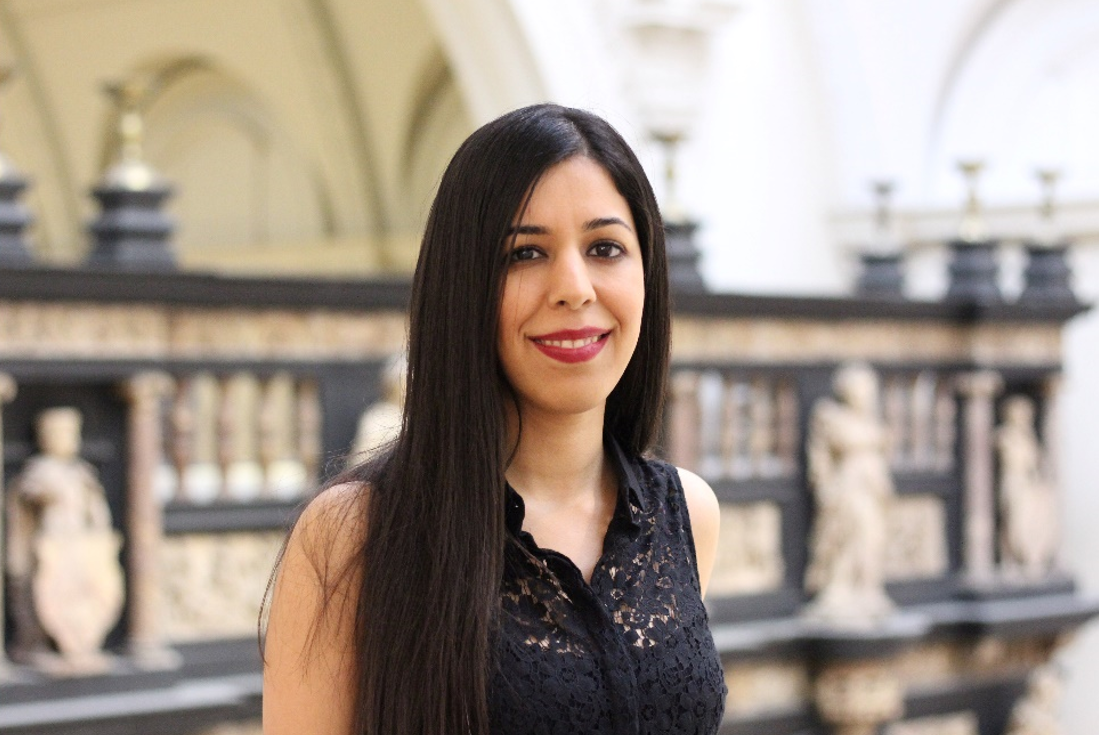In the August 2024 edition of the ECU E-Magazine, European Chess Union published an interview with International Arbiter Shohreh Bayat.
Shohreh Bayat is known for her standing for human rights, as she publicly sent messages of support of human rights, women’s rights, civil protests against the Iranian regime and its violation of women’s rights in 2022/2023. During the FIDE Fischer Random World Chess Championship 2022, Shohreh wore “Women, Life, Freedom” t-shirt, and clothes in colors of the Ukrainian flag, showing solidarity with Ukrainian people hit by the Russian invasion of Ukraine. Bayat’s solidarity messages weren’t accepted by FIDE whose officials asked her to wear “more neutral clothes”. After the tournament finished, Shohreh Bayat, the FIDE Arbiters Commission term came to an end and Bayat was removed from the FIDE Arbiters Council where she served as a councilor for four years.

Shohreh, who is currently an arbiter at the 45th Chess Olympiad, in the interview for European Chess Union, spoke about her experience at different tournaments, and specific preparations required for the Arbiters role.
Shohreh Bayat is one of the world’s most renowned chess arbiters. Shohreh is one of the few women to hold the title of FIDE Category A International Arbiter, the highest level in chess officiating. She gained international attention for her expertise in overseeing major chess tournaments worldwide, including the Women’s World Championship final. This September, Shohreh will once more work as an arbiter at the Chess Olympiad in Budapest.
I have been playing chess since I was 9 years old and won numerous chess tournaments in my home country Iran. I have also represented both the Iranian and English national teams. Besides being an arbiter, I am a FIDE lecturer and have contributed to more than 30 seminars in the development of national, FIDE, and international arbiters around the world.
Shohreh, you will be working as an arbiter at the Chess Olympiad in Budapest. What exactly does your role as an arbiter entail?
This is my fifth Chess Olympiad, and yet I am extremely excited about it. Since 2014, I have been involved in all Olympiads in different roles, such as Sector Arbiter, Fair Play Officer, and Match Arbiter. In this Olympiad, I will be Match Arbiter on the top boards of the female section. It is an important responsibility because teams will compete for medals, and my role involves supervising the games to ensure everything is according to the FIDE Laws of Chess and Olympiad regulations, checking that the conditions of the games are fair, monitoring time controls, checking team composition, interacting with team captains, registering results, addressing issues professionally and in line with the rules, and supporting colleagues in my section, if needed.
How do you get chosen as an arbiter at the Olympiad?
Although I have been in 5 different Olympiads, this is the first time I have been nominated by the European Chess Union. Surprisingly, I received an email from the ECU Arbiters’ Council on my birthday, on March, congratulating me and informing that the ECU nominated me to represent them in the World Chess Olympiad as an arbiter. It was a pleasant surprise, and I am very proud to represent both the European Chess Union and England in this Olympiad and will do my best to be a good ambassador for them.
Are there any preparation meeting or seminars before the Olympiad?
There have been several online meetings for arbiters where we got to know each other and went through our duties to be prepared for our roles. There will be another in-person meeting on Olympiad day. Since I am quite experienced with Olympiads, I am mentally prepared for my role but excited to work with old and new colleagues.
You have been an arbiter at many important events, including previous Olympiads, World Blitz and Rapid Championships, and the Women’s World Chess Championship, just to name a few. Do you have a favourite event – and if so, why?
I used to have a favourite event, but not anymore. Each tournament offers a unique experience, and I enjoy exploring new tournaments at different levels. There is pleasure in working at top-level events, as well as in engaging with children’s tournaments. Since I also teach chess in school and have limited time off, I prefer to spend it traveling to new countries, experiencing new cultures, and exploring the world. That’s why I prefer to choose new countries for my tournaments whenever possible.
Whereas the number of female arbiters seems to increase, women are still a minority. Do you have any ideas on how we can increase the number of female arbiters?
I believe this is not something that can be achieved overnight; it requires a long-term effort. The ECU has already taken valuable steps, such as having 25% of arbiters be female in their events and running free seminars for female arbiters. The next level can be implement of CPD programs for them, as all arbiters need continues professional development to stay engaged and also provide them with regular career opportunities to be motivated.


